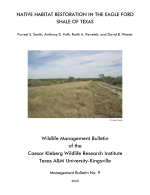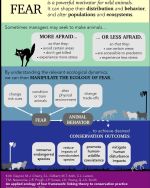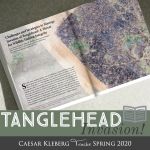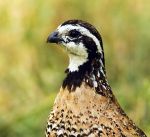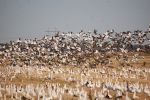
All News
Development of Eagle Ford Shale (EFS) oil and gas resources will continue to have considerable impacts on the native habitats of southern Texas. Diverse native plant communities are important habitat for many wildlife species and underlie the predominant land uses of the impacted region aside from oil and gas production. Major issues associated with EFS development are addressed in this management bulletin based on more than a decade of research.
A new publication co-authored by CKWRI's Dr.
Understanding how animals respond to fear is an important component of successful wildlife management. CKWRI's Dr. Mike Cherry recently co-authored a study that analyzed how to effectively reduce or amplify fear in wild animals by manipulating habitat structure, sensory stimuli, experience (previous exposure to risk) and food safety trade‐offs to achieve management objectives.
At the end of 2020, CKWRI will have completed a four-year study on the use of prescribed fire and cattle grazing to manage the invasive tanglehead grass on a private ranch in South Texas. This research provides reliable information that may be applied by ranchers in the region. Follow link in bio to read full article in the most recent issues of Caesar Kleberg Tracks.
Posted to CKWRI's Instagram page on August 17, 2020. (www.instagram.com/ckwri_official/)
CKWRI’s Evan P. Tanner, Ph.D shares his recent findings on adaptive strategies of Northern Bobwhite and management options during periods of high temperatures in the most recent issues of Tracks.
Posted to CKWRI's Instagram page on August 3, 2020. (www.instagram.com/ckwri_official/)
Beating the Heat: Adaptive Strategies of Northern Bobwhite and Management Options During Periods of High Temperatures
by Evan P. Tanner
Natural disasters such as hurricanes are unpredictable, devastating phenomena. Hurricanes can generate winds 200 km/hr and torrential rain at a rate of 10 cm/hr. While their impact on physical structures (e.g., buildings, trees, etc.) may be readily assessed, the effects of hurricanes on wildlife remain obscure and relatively unknown. A few studies have reported the impacts of hurricanes on wildlife, namely wild turkeys (Meleagris gallopavo; Baumann et al. 1996) and white-tailed deer (Odocoileus virginianus; Labisky et al. 1999).
Extreme climatic events (ECEs) are increasing in frequency and intensity and this necessitates understanding their influence on organisms. Animal behaviour may mitigate the effects of ECEs, but field studies are rare because ECEs are infrequent and unpredictable. Hurricane Irma made landfall in southwestern Florida where we were monitoring white-tailed deer (Odocoileus virginianus seminolus) with GPS collars.
Texas is home to the last remaining populations of the U.S. ocelot, a small and beautiful cat that is often called the little leopard. Researchers estimate that only 50 to 80 of these magnificent and mysterious cats exist in Texas. Ensuring they have a future in the U.S will require cooperation between the federal government and private landowners, and the Caesar Kleberg Wildlife Research Institute at Texas A&M Kingsville is doing the rare research to support those efforts.
Each fall and spring, millions of migratory birds traverse the Texas skies as they make their journeys between temperate breeding areas and tropical wintering areas. The migration route draws national attention, and bird enthusiasts flock to Texas every year to witness the migration and bring with them the hopes of seeing some of the birds that make stopovers during the journey.
In the greater Dallas-Fort Worth area, you may have spotted a scarlet tanager or an array of songbirds in your backyard this spring on their way to their more northerly breeding areas.
Camera trap technology has galvanized the study of predator–prey ecology in wild animal communities by expanding the scale and diversity of predator–prey interactions that can be analysed. While observational data from systematic camera arrays have informed inferences on the spatiotemporal outcomes of predator–prey interactions, the capacity for observational studies to identify mechanistic drivers of species interactions is limited.
